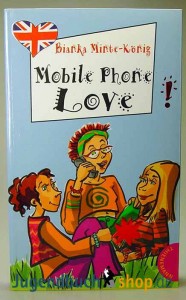We were recently provided with information from a BBDO-Microsoft advertising study that looked at reaching consumers through understanding their emotional connections to various devices.
 [1]At the core of the study are consumers and their relationships with screens. These are not impersonal devices but rather, personifications of their users: caring, loving, normal.
[1]At the core of the study are consumers and their relationships with screens. These are not impersonal devices but rather, personifications of their users: caring, loving, normal.
Originally released last month doing the 8th Cannes Lions International Festival of Creativity [2] in Cannes – which we doubt was attended by most of our readers – the global study’s aim was to help marketers find ‘the next billion consumers’ by exploring consumers’ emotional connections with television, PC, and mobile device screens.
BBDO Worldwide [3] and Microsoft Advertising [4] worked with the global research company Ipsos [5], using projection techniques, picture interpretation, quantitative and qualitative analyses to gather survey feedback from more than 1,500 consumers in five different countries including China, Russia, Saudi Arabia, U.K. and the U.S.
Unlike other digital advertising multi-screen research that is driven by measurement, this study took a different approach, aimed at understanding what’s going on in people’s ‘psyches’ and how they emotionally connect and interact with each screen on a personal level. It applied Jung archetypes to help put personalities to each device.
The study presents a picture of similarities and differences – across geographies, ages, demographics and screens – that provide advertising ideas and suggestions, which can help lead to more compelling and relevant brand messages.
Among the conclusions drawn from this study:
- TV is like an old, reliable and entertaining friend who sits comfortably and passively in your home. (However, there are differences among countries, and among age groups, especially in Russia and China where TV grew up as something viewers were wary of, given that it was state-owned.}
- The PC is like an older sibling – someone to learn from, show off to, and compete with. (It’s far more trusted than TV, especially in Eastern countries and among younger consumers because they can control and choose the content on their PCs.)
- The mobile device is like a ‘new lover’ – the most personal device and something users feel close to. They want it with them at all times. (It is a relationship that is just beginning and, as such, cuts across all age groups and geographies because of its ‘newness’. Mobile devices are definitely the screen of choice in developing markets.
- Tablets are actually something of a mix of the other screens.
Marc Bresseel, vice president, global marketing for Microsoft Advertising, says, “This research brings to life how consumers relate to the devices they use every day in ways that are easy to understand by marketers and especially creatives, thereby allowing them to adjust messages accordingly. There’s empirical evidence that when a consumer is more receptive to a message, that message will be far more effective.”
Based on findings from this study, BBDO and Microsoft have numerous recommendations for each medium, but for our readers, we were most interested in the mobile sector.
The companies recommended that, for mobile messages to be effective, they must recognize the personal nature of this medium.
What works on television or other screens will not necessarily work on mobile devices. Messages must be highly relevant, meaningful and useful. They also have to be intimate, surprising, unobtrusive, help the user fit in and belong.
And for advertisers, the format of the advertising for tablets needs to reflect which ‘hat’ the tablet is wearing.
“Archetypes will continue to evolve as devices become more sophisticated, and audiences grow older, younger or more mature,” says Simon Bond, chief marketing officer for BBDO North America and co-presenter of the research at Cannes. “What’s important is to know how people are interacting with these screens now, rather than five years from now. While some marketers may have mastered individual screens, no one has mastered them all.
“Therefore, when advertising is optimized for these screens, it could have the potential to attract ‘the next billion customers’, especially when you look at places like India where there are more than 100 million PC users or in China where there are three times as many mobile users.”
In other words, there’s the potential to attract one billion new customers by getting the content right across all four screens.